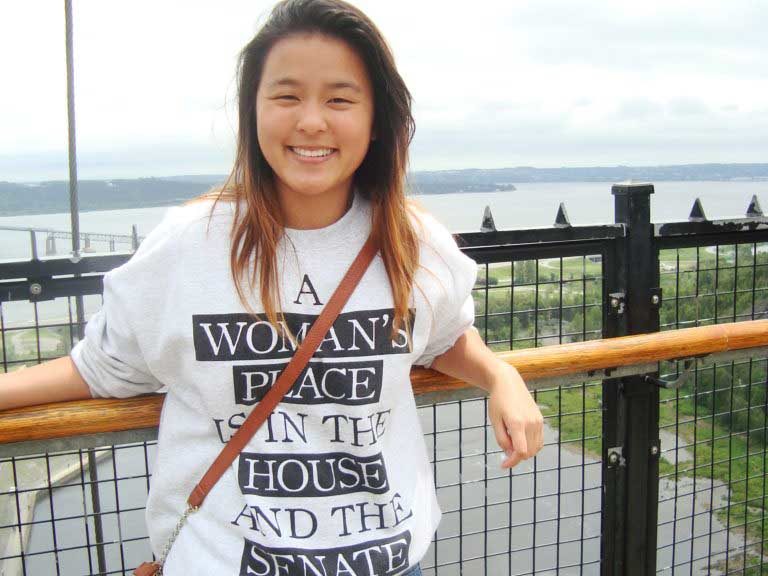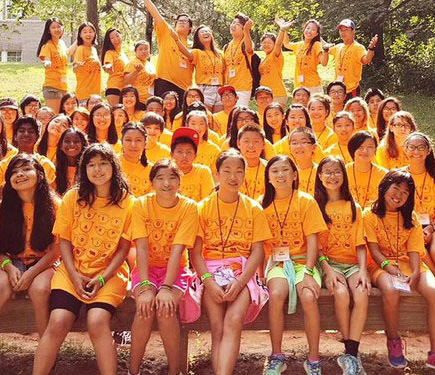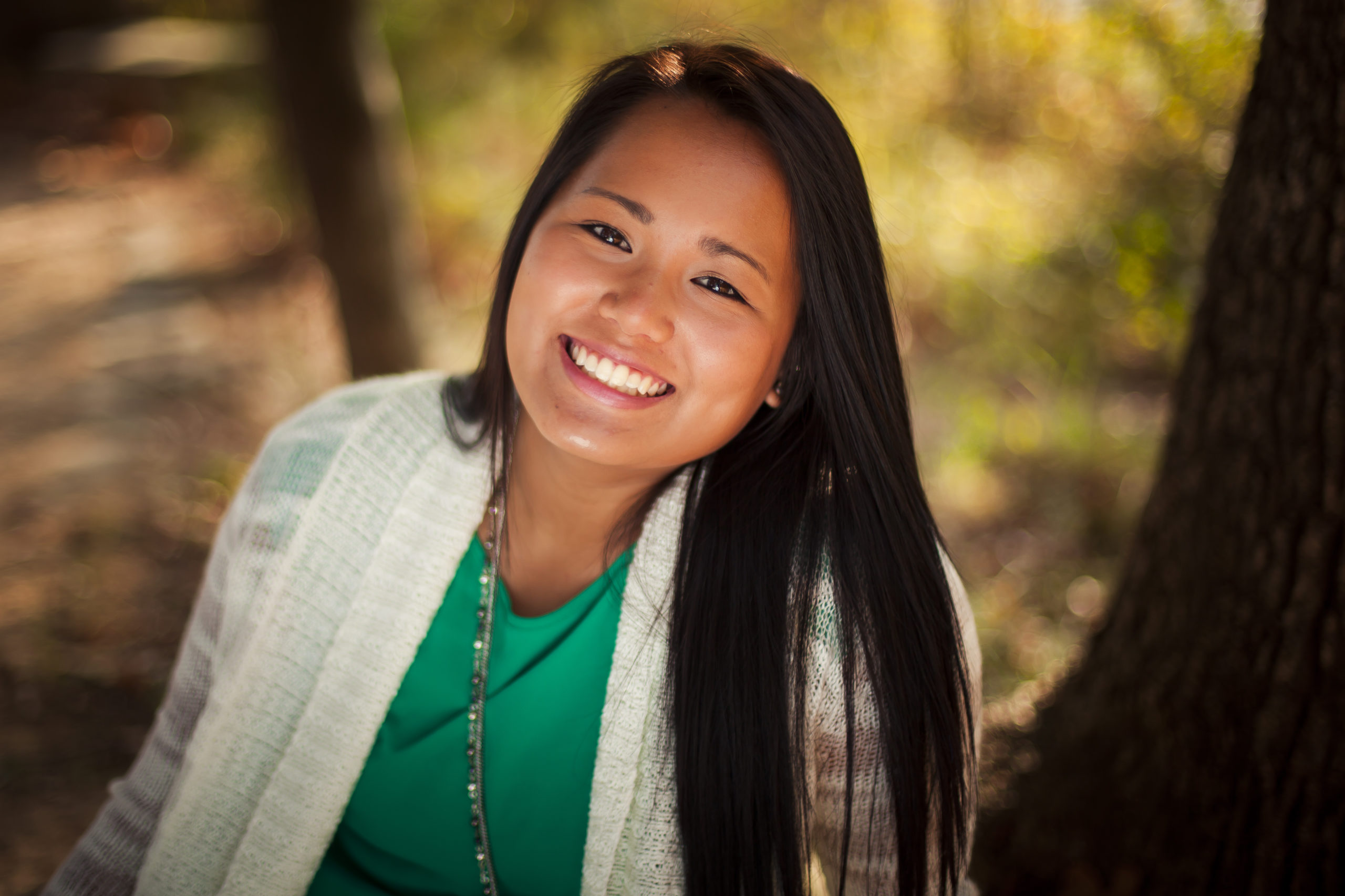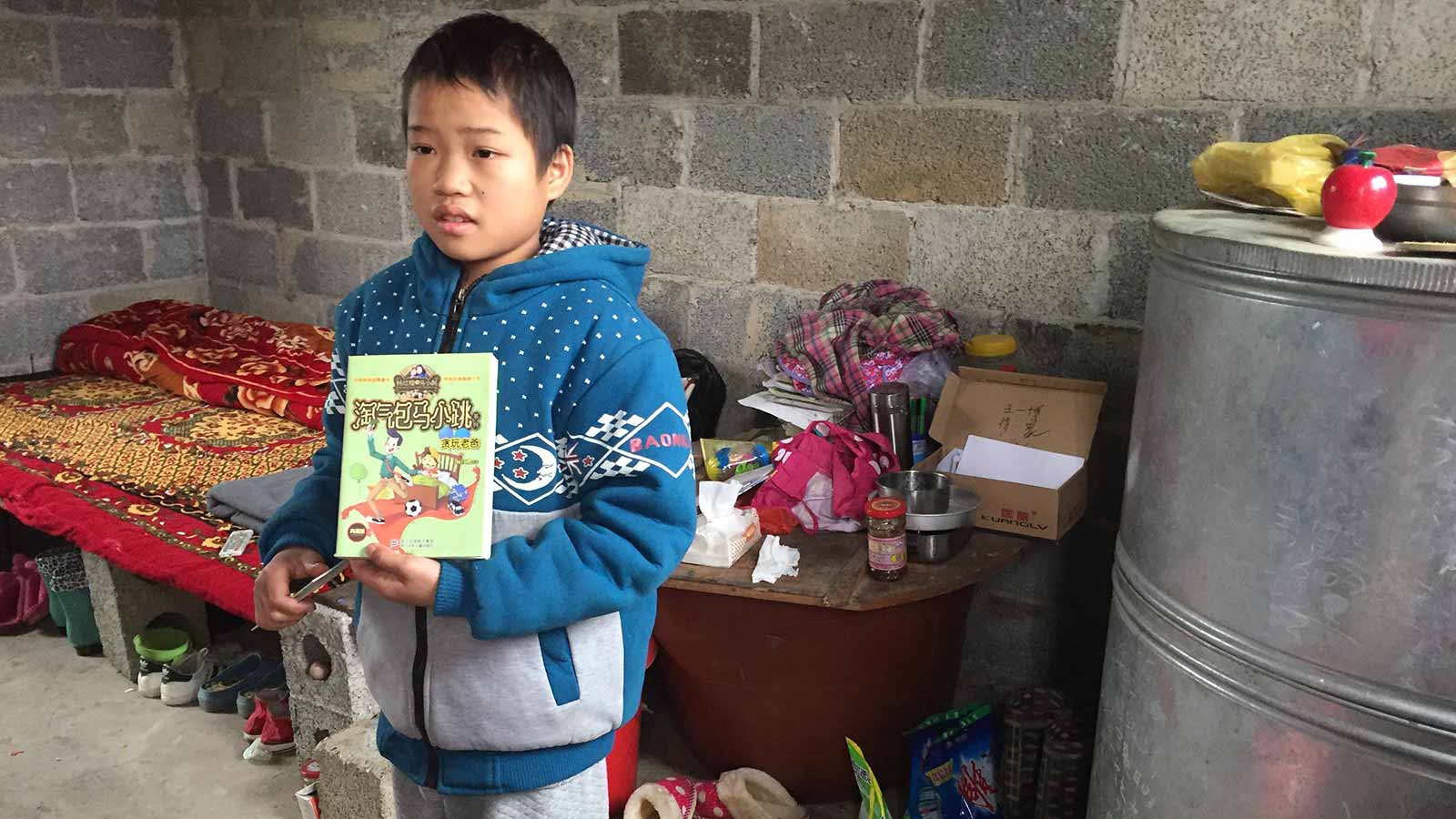In her winning submission to Holt’s 2016 adoptee essay contest, Noel Hincha explores how adoption has shaped her identity. Noel is currently a student at Marquette University in Wisconsin.

I am never one to become sentimental off the basis of adoption. However, it has perhaps created an indefinite identity crisis. All of life is a journey to find the true self – no doubt physically, spiritually and emotionally – through a turbulent ebb and flow of joy and peril.
At the ripe age of fresh-out-the-womb, a family member wrapped me in a white and red cloth and set me down on the steps of a Chinese orphanage: Changde, Hunan, China. Surrounding me was a small farmland, smelling of rural labor and river fish being pulled up by the rusty hooks of a smiling old man with wrinkled lines. It probably was an awkward goodbye – as all seem to be – but maybe a tear or two fell upon my cheeks. When the morning sun rose to a higher degree, it hit my eyes, a crystal light reflecting off the morning dew. I was Chinese, Chang Jing.
At the age of one, my caretaker lifted me into a car filled with others like me, and in a few hours, they would be engraved as my sisters – my family unconditionally. Down a dim hallway she carried me until a white woman picked me up. I cried and wailed – a natural encounter with an exotic foreigner. The atmosphere consisted of anxiety, joy and tears. In the eye of the storm, a calm chaos of shaking hands between each other and alone in silence. Babies crying, women crying, men crying. Chinese crying, Americans crying. I was scared and sweating with layers and layers of clothing, of culture, one by one being stripped away. Mesmerizing, green eyes staring into soft, brown eyes. I was Chinese, Noel Jing.
At the age of 7, I was rambunctious and carefree: a smart child with jokes running wild out of a witty tongue. Two ponytails swayed behind my back in a valiant effort to imitate Sailor Moon, but she was blonde. A classmate hollered my name, “Hey, why are your eyes like this?” He squinted, pulling back his own chocolate skin and covering his eyes into unmerciful slits. “My mom was Chinese, my dad was Japanese, and now I’m Swiss cheese.” Then: laughter, my own laughter distraught with confusion. I had an American heart in a Chinese body. Who was I to assimilate with? All I wanted was snack time and recess. I was American, Noel.
At the age of 12, I was awkward – as all are when adolescence bellows in. Little boys began to grow, and I was no longer the tallest. I was shrinking. Girls started gossiping, and fun wasn’t games but shopping. I was calm and I was changing, yet still, the very mention of Asian culture froze my being, silenced my thoughts. I had xenophobia: I irrationally feared Chinatown, intentionally avoided “real” Asians, and gladly excused Chinese food. I didn’t know how to feel, how to react, what to feel. It was my culture, but I wasn’t them. I wasn’t anyone. I was stuck in the middle with one foot in rice and one foot in pizza – both feet burning. Pushed back, into the depth of my mind. I was Chinese-American, Noel.
At the age of 15, I was shy and unknowing, but above all I was determined. I studied hard, education was important. My mom was a teacher. I sat in my itchy, wool plaid skirt and maroon polo. My hair hung down in an assortment of dyed colors – the rebellious phase of a stirring youth. My converse were ripped and shredded, stains of adventure treaded through a predominantly white, Catholic all-girls high school in the most segregated city in America. My environment compelled me to embrace the most prominent feature that proved my individuality and uniqueness. In a sea of iPhones, Starbucks and country music, I bragged my Korean-made Samsung, hot tea and K-pop. A sincere math teacher passed back our first test of the year: an A. “What did you get? Of course, because you’re Asian!” I was Asian, Noel.
At the age of 19, I was confident and capable. I learned the subtle art of race and identity. I appreciated the beauty of culture — admittedly it was like a drug. An addiction formed: I wanted travel, writing, people, adventure. Adoption wasn’t a mistake or a trouble, but an act of fate. I strolled around an alluring campus, taking in the crisp air of spring and the chill of Lake Michigan. Friendships formed and futures solidified. I wasn’t planning on becoming a doctor or an engineer. I started a major in anthropology. I was American to my Chinese friends. I was Chinese to my American friends. Superficial identities troubled me little, and personal identities began to grow. My being wasn’t the property of societal expectations. I was simply human; I was Noel Jing — Chang Jing.
So, here I lie on a tight rope between human cultures. I was born in China, I grew up in America. I know English and am learning French. My mother commands me in German while my friends laugh with me in Spanish. I eat fried rice, tacos and casseroles with chopsticks, fingers and forks. Yes, culture defines one’s self, but I think my label deserves more than its physical characteristics and stereotypical agenda. It’s not necessarily an identity crisis. More or less, it’s an adventure to finding one’s self. Perhaps, those who are adopted have a little more adventure to contend with.
Noel Hincha • Milwaukee, Wisconsin





Well written, Noel! Glad that you found yourself and didn’t get “lost” with your identity.
Love your shirt, by the way! 🙂
Ramya
Noel: well done !
The journey is the destination …. enjoy the trip.
Noel, I loved your story! Such a poignant recount of finding not just yourself as a person, but also discovering and immersing yourself in other cultures. I hope to think that other kids who aren’t familiar with other cultures will not stay ignorant and tease, but instead will someday willingly decide to learn about other cultures and identities (using your story as an example). (: Perhaps they will find something they didn’t even know about themselves.
Noel,
I love the heart and the story of this.
It is well that your sweatshirt says: “A Woman’s Place is in the House…and in the Senate.”
Your place is everywhere.